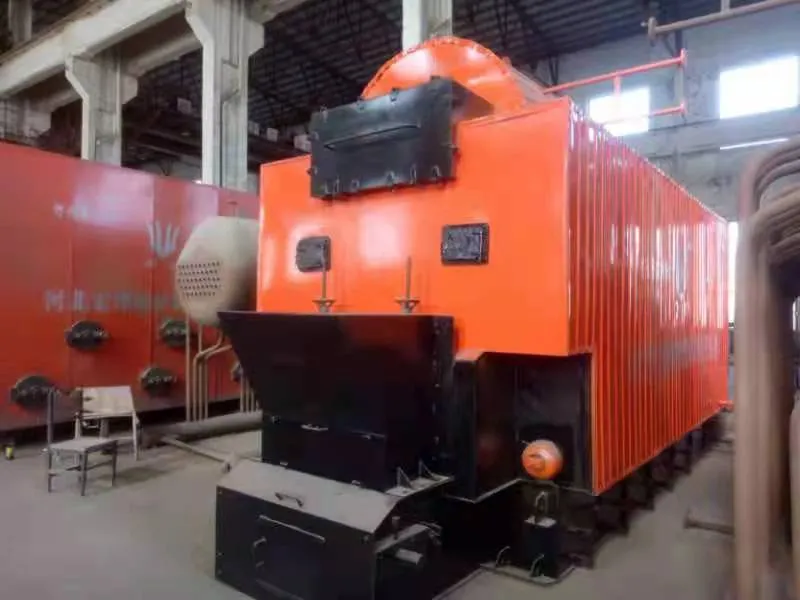
Feb . 13, 2025 03:31 Back to list
Coal-fired hot water boiler
When considering a coal-fired hot water heater, potential buyers are often driven by reliability and cost-effectiveness, particularly for large-scale applications. The appeal is undeniable, especially in regions where coal is a readily available resource and the installation of such systems is less of a financial burden compared to other energy sources. Yet, not all coal-fired water heaters are crafted equal, and understanding the nuances is critical to making an informed decision.
2. Efficiency Ratings Not all coal-fired hot water heaters are created equal. Newer models often incorporate advanced technology to enhance efficiency and reduce waste. When shopping for a system, it's crucial to compare efficiency ratings and seek out models that have improved heat exchange processes and reduced coal consumption rates. 3. Maintenance Requirements While these systems are reliable, they do require regular maintenance to operate efficiently. This includes regular cleaning to prevent soot buildup, routine inspections to ensure all components are in good condition, and periodic replacements of parts that may wear over time. Users should be prepared for these commitments to ensure longevity and performance. 4. Installation Considerations Proper installation is critical for safety and efficiency. This involves ensuring adequate ventilation, proper placement to prevent risk from heat or fumes, and adherence to any building codes or regulations. Professionals knowledgeable about coal systems should always conduct the installation to avoid any potential hazards. Expert Insights and Real-World Experiences Industry experts often emphasize the importance of integrating modern monitoring systems with coal-fired heaters. These systems can provide real-time data on performance, alerting users to inefficiencies or potential issues before they result in downtime. Furthermore, auto-feeder systems can enhance the operation by ensuring a consistent fuel supply, reducing labor costs and the margin for error. Real-world users of coal-fired hot water heaters frequently highlight the system’s robustness as a key benefit, with many reporting minimal issues outside regular maintenance over decades of use. This matches expert opinions that these heaters, while traditional, have kept up with modern demands through technological advancements. Finally, when transitioning to a coal-fired hot water heater, or updating an existing system, consulting with a professional who can offer tailored advice based on specific requirements and conditions cannot be overstated. Their expertise can offer invaluable insights, ensuring a solution that balances cost, efficiency, and environmental care effectively. In conclusion, coal-fired hot water heaters remain a viable and often preferable option for those in areas where coal is abundant and cost considerations must be judiciously managed. With strategic purchasing and proper maintenance, these systems offer a dependable source of hot water capable of meeting even the most demanding needs.


2. Efficiency Ratings Not all coal-fired hot water heaters are created equal. Newer models often incorporate advanced technology to enhance efficiency and reduce waste. When shopping for a system, it's crucial to compare efficiency ratings and seek out models that have improved heat exchange processes and reduced coal consumption rates. 3. Maintenance Requirements While these systems are reliable, they do require regular maintenance to operate efficiently. This includes regular cleaning to prevent soot buildup, routine inspections to ensure all components are in good condition, and periodic replacements of parts that may wear over time. Users should be prepared for these commitments to ensure longevity and performance. 4. Installation Considerations Proper installation is critical for safety and efficiency. This involves ensuring adequate ventilation, proper placement to prevent risk from heat or fumes, and adherence to any building codes or regulations. Professionals knowledgeable about coal systems should always conduct the installation to avoid any potential hazards. Expert Insights and Real-World Experiences Industry experts often emphasize the importance of integrating modern monitoring systems with coal-fired heaters. These systems can provide real-time data on performance, alerting users to inefficiencies or potential issues before they result in downtime. Furthermore, auto-feeder systems can enhance the operation by ensuring a consistent fuel supply, reducing labor costs and the margin for error. Real-world users of coal-fired hot water heaters frequently highlight the system’s robustness as a key benefit, with many reporting minimal issues outside regular maintenance over decades of use. This matches expert opinions that these heaters, while traditional, have kept up with modern demands through technological advancements. Finally, when transitioning to a coal-fired hot water heater, or updating an existing system, consulting with a professional who can offer tailored advice based on specific requirements and conditions cannot be overstated. Their expertise can offer invaluable insights, ensuring a solution that balances cost, efficiency, and environmental care effectively. In conclusion, coal-fired hot water heaters remain a viable and often preferable option for those in areas where coal is abundant and cost considerations must be judiciously managed. With strategic purchasing and proper maintenance, these systems offer a dependable source of hot water capable of meeting even the most demanding needs.
Share
Latest News
-
Efficient Biomass Fired Hot Water Boiler | AI Heating Solution
NewsAug.01,2025
-
High-Efficiency Gas Thermal Oil Boilers | HPT Models
NewsJul.31,2025
-
Oil Fired Hot Water Boilers Sale - High Efficiency & Affordable
NewsJul.31,2025
-
High-Efficiency Commercial Oil Fired Steam Boiler for Industry
NewsJul.30,2025
-
High-Efficiency Biomass Fired Thermal Oil Boiler Solutions
NewsJul.30,2025
-
High Efficiency Gas Fired Thermal Oil Boiler for Industrial Heating
NewsJul.29,2025
Related PRODUCTS
Copyright © 2025 HEBEI HONGZE BOILER MANUFACTURING CO., LTD. All Rights Reserved. Sitemap | Privacy Policy






















